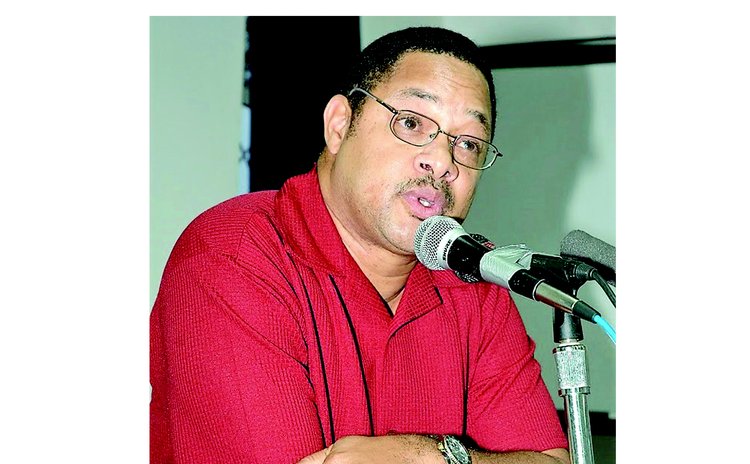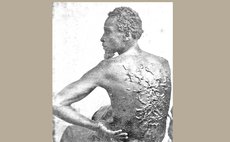In electoral reform, trust is everything

Trust in governments has been steadily declining all over the world. For example, only 31 per cent of the population of the United States of America (USA) trust their government; the figure in the United Kingdom is a paltry 39 per cent.
Although there are no statistics to prove or disprove this, Dominicans generally do not trust their government. That condition of mistrust has been in acute decline over the past two decades.
In an article entitled "Who can you trust?" published in January 2017, Reginald St. Havis Shillingford stated: "Our world, unfortunately, is so full of scoundrels too very capable of keeping an impassive facial expression while asking us to believe and swallow what is totally inadmissible".
How do people define trust? When they talk about distrust, most people mean that they believe that others will act opportunistically. They will make promises they cannot keep, renege on promises they can keep, and violate norms to take advantage of other people who adhere to them. In short, trust is faith in others — in their honesty, dependability, and goodwill.
Moreover, trust and mistrust are at the heart of the ongoing controversy over electoral reform in Dominica.
"Part of the problem we have here is the issue of trust," said Nicholas George, the secretary of the opposition United Workers Party (UWP). "We do not trust the Electoral Commission; we do not trust the Honourable Prime Minister. Sir Dennis should have reflected on that (after the Prime Minister called a snap election in 2022 before Sir Dennis completed his report).
George was then summarizing a three-hour Dominica Business Forum (DBF) consultation on the Sir Dennis Byron Draft Electoral Legislation held at the Truth &Grace Fellowship Global Church on Independence Street, Roseau, on August 3 2023.
Based on the presentations at that consultation, most opposition groups distrust Sir Dennis Byron, the one-person commission on electoral reform.
Sir Dennis Byron's contract
Remember that Sir Dennis was hired by the government of Dominica "to examine the electoral process in Dominica", according to a Cabinet meeting signed by Steve Ferrol, the Cabinet Secretary.
In 2020, the ministers agreed that the scope of work would include a review of existing legislation to propose amendments, a review of electoral and other such reports, proposing recommendations on how to proceed, including legislative reforms to strengthen the electoral process and advice on voter identification cards, and advice on how to update and maintain the electoral register.
Sir Dennis would be paid EC$450,000 for his service, half of which was due at the beginning of the exercise and the remainder at the end, according to the minutes. He sent in the second phase of a two-phase report in July 2023.
We suggest that the opposition distrusts Sir Dennis not only because the Prime Minister and political leader of the Dominica Labour Party (DLP), who has been a significant player in the contesting of elections in Dominica for two decades, hired him.
Dominicans also distrust Sir Dennis because they believe the popular idiom that he who pays the piper has a right to decide the songs that the piper plays. However, Byron says that although he was Skerrit's piper, he did not play Skerrit's tune.
In his report, Sir Dennis argues, "a democratic system of good governance, fairness, equity, transparency, and accountability are all principles that underpin the proposals" that he made in his report.
Sir Dennis adds: "My advice and recommendations have been independently, impartially and objectively formulated, without any bias or influence".
Dr. Andre on Byron's proposals
These are the same proposals that Dr. Irving Andre, a Canadian Judge and Dominican author, wrote, "After three years, Sir Byron has delivered, in exchange for over $600,000 silver dollars, reforms that Mr. Skerrit has been searching for all over the democratic world, without success. Sir Byron had to symbolically dive deep and far in an ocean where no electoral expert had gone before, where no light of democracy shines, to surface with a titanic of rushing reforms that will destroy Dominica's democracy and instead create a Skerritocracy with red carpets leading to mansions, banks, shady convicted ambassadors and incomplete or empty hotels."
Andre concludes: "The critical features of Sir Byron's final report include …provisions that will allow Mr. Skerrit to conduct elections in the same manner that he has done before, contrary to the caution of the CCJ but without any accusations of illegality or unlawfulness".
Are Dr. Andre and Sir Dennis referring to the same report?
Has anyone noticed that Sir Dennis is like the student who writes an essay and then grades himself with an A++?
In the introduction to Phase One of the report, Sir Dennis suggests ….
To add to the issue of trust, there is the issue of recommending national identification cards for voting in Dominica instead of voter identification cards.
Sir Byron says a survey by the Dominica Electoral Commission showed that Dominicans preferred a national identification card. However, that survey was seriously flawed.
"After I submitted my response, imagine my surprise when a message came up on the screen inviting me to take the survey again! "someone wrote anonymously in a letter to the editor of the Sun about that survey.
And finally, who in his right would trust a referee who pays to write the rules of a game, conducts consultancies on these rules, and then is an active player in that game?
So, let us continue to delude ourselves, let us hide our heads in the sand and let us continue walking with our eyes closed, as the calypsonian Intruder sang some time ago. Let us believe that a government always puts the country first and the party afterwards. It is our country, so let us trust that our Honourable parliamentarians are all honourable statesmen and women.
As Americans say, Good luck with that!




